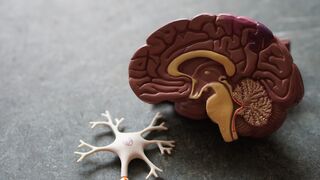Psychiatry
5 Things I Took From the Article “Medicine and the Mind"
How biological psychiatry has not yet answered the questions of mental illness.
Posted July 30, 2020

Jeffery Smith, founder of the Convergence SIG, recently sent me an article from October 2019 titled “Medicine and the Mind: The Consequences of Psychiatry’s Identity Crisis,” by psychiatrist Caleb Gardner and world-renowned psychiatrist and anthropologist Arthur Kleinman in the New England Journal of Medicine. (As a medical student at the time, Gardner won the Samuel Novey Prize in Psychological Medicine at Johns Hopkins in 2015 with this essay, which is also worth a read.)
I found the article a concise and thought-provoking treatise on some central ways in which the “biological revolution” of modern psychiatry has failed to address the core issues of psychopathology and its treatment. Several of these issues are also discussed in more detail in Gardner’s interview with Stephen Morrissey, Editor of the New England Journal of Medicine. Five issues in particular stood out to me in this article:
1. Diagnostic checklists prevent, or at least distract from, a deeper understanding of psychopathology.
Gardner and Kleinman highlight the longstanding history of critiques of the Diagnostic and Statistical Manual of Mental Disorders (and other nosological systems, like the International Classification of Diseases), pointing out that “checklist-style amalgamations of symptoms have taken the place of thoughtful diagnosis.”
Simply relying on checklists to diagnose and understand human psychological problems is a doomed approach. A deeper understanding of the psychological dynamics, interpersonal interplays, and functional causes of maladaptive behavior is key to understanding, diagnosing, and treating mental illness and can be easily overlooked when focusing only on counting symptoms.
2. Models of psychotherapy provide insight into the inner workings of the mind.
Gardner and Kleinman point out that modern psychiatry has almost entirely discarded the rich, nuanced, and complex theoretical understanding of the mind and its discontents that are at the core of theories of psychotherapy and psychopathology. Many of today’s therapists, too, appear to have forgotten the importance of a theoretical framework from which to operate clinically, instead often practicing from an “eclectic” stance of “just try what feels right in the moment.”
As the authors point out, “if advances in modern neuroscience have taught us anything, it’s that the brain-mind and its emotional and cognitive processes are even more complicated and mysterious than previously thought.”
Related, Gardner and Kleinman highlight that insights and evidence from the field of psychotherapy have made clear the importance of the relationship between doctor and patient in promoting change in psychiatric treatment. Focusing on purely biological mechanisms or static symptoms in isolation fails to account for both the relational conduit through which change most often occurs and the complexity of interactions both within the mind and between the mind and the outside world that may manifest as psychopathology.
3. A one-size-fits-all approach likely will not work to help treat all problems that come to us as clinicians.
In their article, Gardner and Kleinman rue the trend towards “revolving door” care provided by psychiatric hospitals and providers, in which caseloads are overflowing and sufficient time with each individual becomes harder to find. With this trend comes a “one-size-fits-all approach to diagnosis and treatment,” which, while in the abstract sense this seems ideal, such one-size-fits-all approaches have been based on limited and circumscribed domains of knowledge.
For instance, Gardner and Kleinman point out that “biologic psychiatry has thus far failed to produce a comprehensive theoretical model of any major psychiatric disorder… or any guiding principle for somatic treatments to replace the empirical use of medications.” Without a common infrastructure underlying the range of mental health and ill-health that incorporates basic knowledge from a broader spectrum of psychological research, such an approach is unlikely to succeed.
4. A more complete theoretical model of psychopathology lies within reach.
Instead, moving away from the current zeitgeist that “the solution to psychological problems involves matching the ‘right’ diagnosis with the ‘right’ medication” to a three-dimensional approach to psychopathology is within reach. Growing threads of research, from social, cognitive, psychodynamic, attachment, evolutionary, biological, neurological, and cultural veins, now, together, suggest that there may be some core psychological processes that undergird the manifestation of psychopathology in all its varied forms.
This is consistent with Gardner and Kleinman’s points that “biology and dynamic psychological considerations can complement one another” and that “our mind arises from brain function, and both conscious and unconscious mind processes feed back continuously to shape that function.”
As an example, Jeffery Smith’s (2017) proposed a common infrastructure for psychopathology that takes into account cognitive appraisal of threatening or stressful situations, conscious and/or unconscious emotional response to appraised threat, and evolutionarily-driven adaptive behavioral mechanisms that are activated by core emotions that give rise both to healthy and unhealthy behavior. Such an integrative model, instantiated in basic biological and neurological systems, may be able to provide a common approach to treating psychopathology that simultaneously accounts for the complexity of and heterogeneity in people’s responses to life.
5. Teaching and training need to adapt in response to the limitations of existing psychiatric models.
“We believe that a fundamental rethinking of psychiatric knowledge creation is in order,” write Gardner and Kleinman in summary of their critiques of the state of the profession. Gardner, in his interview with NEJM, points out that the insights afforded by the field of psychotherapy are worth incorporating into biological psychiatry, not simply because psychotherapy is an effective complement to medication management, but because the premises underlying psychotherapy and its theories revolve around the complexity and humanness of the mind. Simply looking for biological explanations of psychological problems misses out on the wealth of knowledge of social, cultural, interpersonal, psychodynamic, and cognitive processes that constantly influence human behavior and thus can inform treatment.
I would argue further that training in a common understanding of the core components of psychopathology broadly would also provide both an increased understanding of the human mind that is shared across disciplines, while also providing new insights into optimal ways to approach clinical work.
Whether you read Gardner and Kleinman’s article or not, we would love your thoughts posted as comments below!
—Benjamin N. Johnson, MS
SEPI members, join the Special Interest Group here for more information about the latest on convergence in psychotherapy.
References
Gardner, C., & Kleinman, A. (2019). Medicine and the mind—the consequences of psychiatry’s identity crisis. N Engl J Med, 381(18), 1697-1699.
Smith, J. (2017). Psychotherapy. Springer International Publishing. http://link.springer.com/10.1007/978-3-319-49460-9




